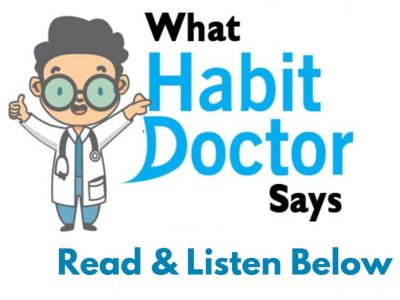Your life will be disrupted by bad habits, and you will be unable to achieve your objectives. They put your emotional and physical well-being in peril. They’re a big waste of time as well.
Why do we continue to do them?
Is there anything you can do other than, most importantly? Two things are to blame for the majority of your unhealthy behaviours: Stress and boredom. Mental habits are thinking processes that occur habitually in response to specific cues or conditions. Bad habits are frequently just a technique of coping with stress and boredom. Biting your nails, going on a shopping spree, drinking every weekend, and squandering time on the internet are all simple ways to cope with stress and boredom.
Things Don’t Turn Out As We Think
It’s critical to understand the root causes of your negative habits if you want to break them. Some poor behaviour will morph into vexing mental habits. Identifying your three sorts of mental habits can assist you in breaking the ones that are detrimental to your mental health. Habits that involve how you spend your time, energy, and activity can obviously assist you in organising your life and staying on track. Negative thought habits, on the other hand, might have a different and less productive nature in how you perceive your experiences and even how you view yourself.’
A harmful habit is not eliminated; rather, it is replaced.
All of your current behaviours, whether good or negative, are present in your life for a reason. These behaviours benefit you in some ways, even if they are harmful to you in other ways. When it comes to smoking or drugs, the benefit is sometimes biological. It can be emotional at times, such as when you stay in a toxic relationship. And, in many circumstances, your undesirable behaviour is merely a stress-reduction strategy.
How to Drop a Bad Habit
Here are some more suggestions for breaking undesirable habits and approaching the task in a new light. Dropping bad habits is essential for the overall development of a person. Make a plan to replace your undesirable habit. You must prepare ahead of time for how you will react when you are confronted with the stress or boredom that triggers your bad habit. Whatever it is and whatever you’re dealing with, you need to make a strategy to replace your bad behaviour with something better.
Remove as many triggers as you can.
Avoid the items that promote harmful habits to make it simpler for you to break them. Right now, your surroundings make bad behaviours easier and healthy habits more difficult. You can alter the outcome by altering your environment. Perhaps your mental habit was self-criticism and your proclivity to correlate thoughts about yourself with the feeling that you’ve done something wrong. Examine these 12 statements once more and consider how you may break the behaviour. You’ll see that they fit into three categories of habit-breaking strategies as you go:
For example, to lessen the frequency of your self-criticism, try noticing every fourth self-critical thought you have and seeing if you can reduce the number by one until you reach zero.
Analyzing how many of these correspond to your own mental habit will help you remember to “stop” whenever a self-critical thought arises. Another technique to break the chain is to divert your attention to something else.
People can form mental habits that can become an integral part of their identity. You can perceive your mental habits as core to your sense of, just as you regard your physical habits and activity as part of your own concept of your identity. Interpreting yourself as someone who isn’t ruled by your mental habits can even help you counteract the other damaging aspects of this bad process.
To summarise, if you decide to follow these three simple steps, you may take conscious control of your mental patterns. Of course, some mental habits are beneficial and helpful; in fact, according to one study, “good mental habits may boost mental health.”Once you’ve emancipated yourself from the grip of negative mental habits, you might be able to tap into those growth-oriented behaviours that will eventually lead to fulfilment”.



Daily inspiration for positive change. These articles have made me more mindful of my choices.